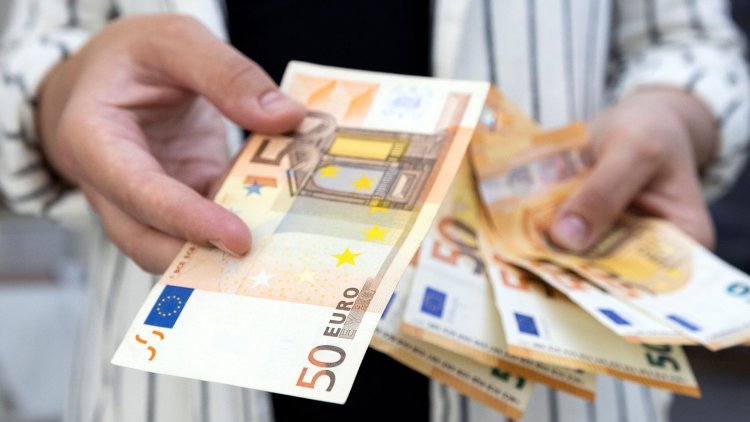As Russia cuts off gas, the euro drops to its lowest level in 20 years
After Russian national gas producer Gazprom PJSC declared on Friday that it will stop supplying through the Nord Stream pipeline permanently, European countries, led by Germany, adopted measures over the weekend to address a cost-of-living problem and skyrocketing energy costs.

After Russia turned off major gas pipes, escalating the continent's energy crisis and predicting a long, chilly winter for businesses and consumers, the euro and European stock futures fell.
After Russian national gas producer Gazprom PJSC declared on Friday that it will stop supplying through the Nord Stream pipeline permanently, European countries, led by Germany, adopted measures over the weekend to address a cost-of-living problem and skyrocketing energy costs.
The euro's Monday decline to 98.80 US cents, the lowest level since 2002, was accompanied by a 3.3% decline in the price of the Euro Stoxx 50 futures. German government bond futures increased by 80 ticks to 149.13 ahead of this week's ECB policy decision.
"Euro has more downside," said Rodrigo Catril, a currency strategist at National Australia Bank Ltd., "given that the entire impact from the indefinite cut in Russia gas supply to Europe is yet to emerge." No gas means no economic expansion and a hawkish ECB.
Since Russia's invasion of Ukraine harmed relations between the Kremlin and Europe and drastically increased commodity prices, the energy problem has gotten worse. The euro and the dollar last month reached parity for the first time in twenty years as a result of this important factor. In a time when the ECB is under pressure to tighten monetary policy due to rising consumer prices, the increased restrictions on energy supply ahead of the winter threaten to severely hamper the regional economy.
Lagarde’s Challenge
Expectations are building that the ECB will increase rates by 75 basis points as soon as this Thursday. The choice is still difficult as IMF chief Christine Lagarde and her team deal with the concomitant issues of high inflation and an approaching recession.
Su-Lin Ong, head of Australian economic and fixed-income strategy at Royal Bank of Canada, warned that markets "may start to question how much inflation central banks are willing to tolerate if economies slip into recession, especially if that inflation's origin is supply driven." "The price to be paid is ultimately poorer growth, or recession, and a weaker labour market, but persistently high energy prices could limit how far the ECB pushes this week and over the cycle."
Germany revealed a relief package of approximately 65 billion euros ($65 billion) on Sunday, signalling the gravity of the issue, while Finland said it will stabilise the power market with a $10 billion initiative. Sweden, which is attempting to prevent a wider financial disaster, announced on Saturday that it would provide a $23 billion emergency backup for its utilities.
Before the various relief measures were revealed, analysts at Goldman Sachs Group Inc. lead by Kamakshya Trivedi lowered their expectations for the euro from 99 cents to 97 cents for the next three months in a report they released on Friday. Additionally, they think that for a period of six months, the euro will remain below parity with the dollar. Prior to it, they predicted a return to $1.02.
"While the euro area has made substantial progress in building up gas storage for the upcoming winter, this has been at the cost of significant demand destruction through production cuts, and does not completely exclude the danger of a more severe disruption throughout the winter," they wrote in the note.




 admin
admin 




















